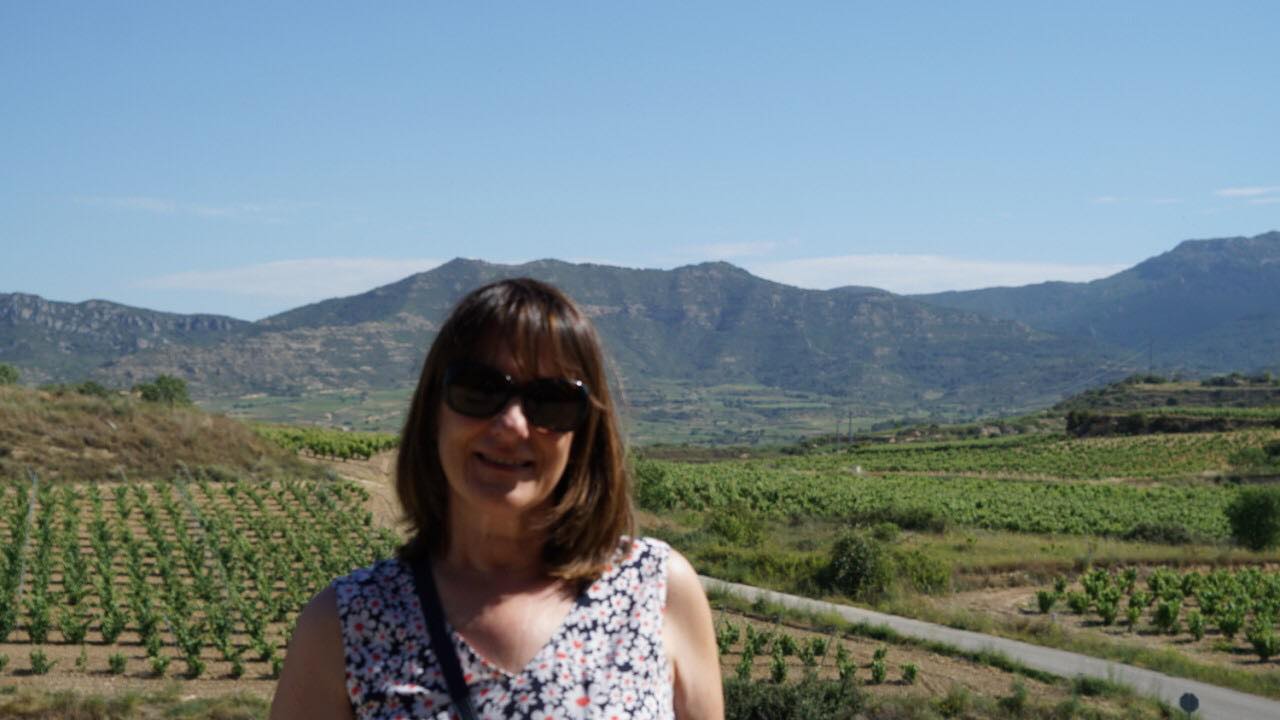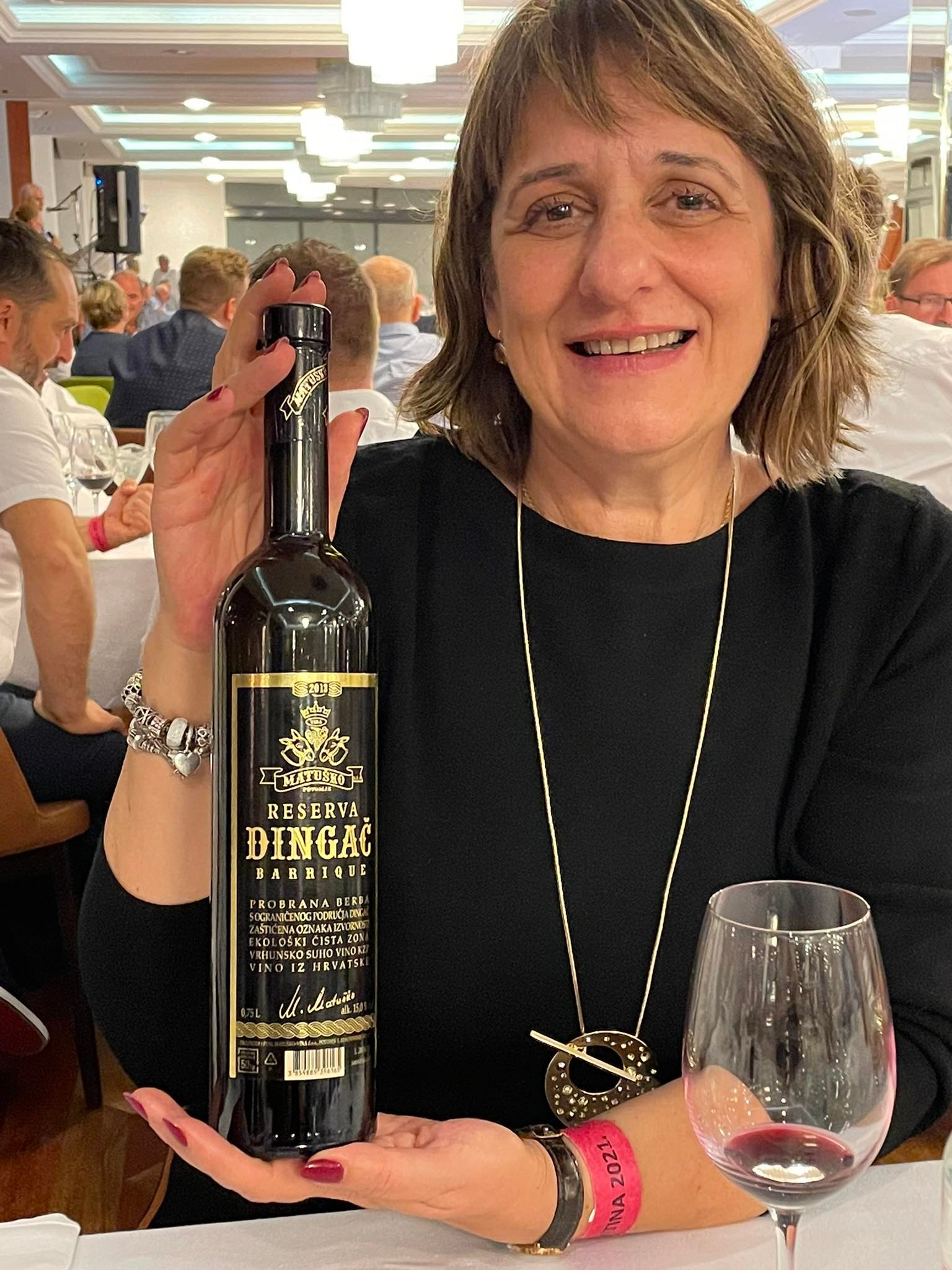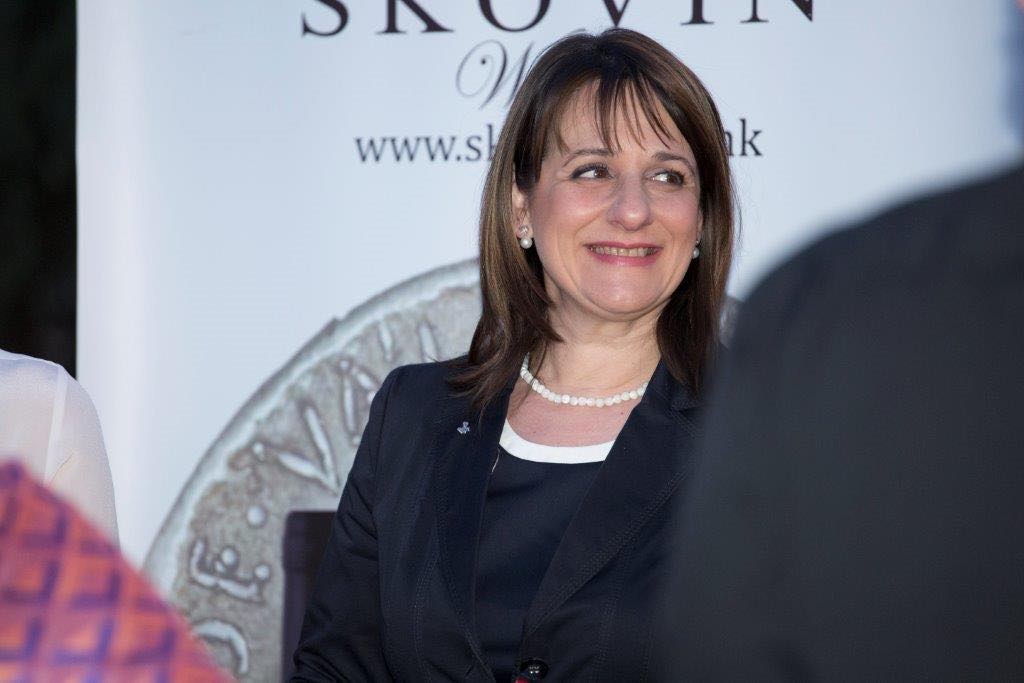CONVERSATION | Venera Gelebesheva Krstic, an artist who makes great wine from good grapes: Fruit and fresh wines are in trend, not too burdened with wood and alcohol

Making wine is an unusual challenge, but for the oenologist Venera Gelebesheva Krstic it is an everyday, profession.
She inherited her love of wine from her father, who was also an oenologist. He guided her to the secrets of wine, took her with him to tastings and conveyed her love for wine. First, Venus enrolled at the Faculty of Agriculture in Skopje, in the field of viticulture and fruit, and then continued her postgraduate studies. At that time there was no master's degree in oenology in Macedonia, so she enrolled in Belgrade, where she received her master's degree in biotechnology, fermentation technology. This was followed by several specializations, training courses, trainings and the like, all related to wine.

What are the current challenges in your work? What kind of travel in the world of wine do you allow us today?
- Making wine is a daily challenge. It is a job that requires daily activity. Wine is a living substance, it changes and develops every day and requires attention. Just seeing how it changes is a challenge to explore and improve with each related activity. At the moment the wine is young, so we call it in this period, and requires special care, to be poured, clarified, filtered, stabilized. A real journey to the moment when we will get ready wine to offer on the market.
What do you like about your job? Is there something you least like, something that "must be done"?
- This job is a challenge for me and the fact that I make a product that is intended for enjoyment makes me happy and fulfilled. There are times when it is hard, especially during the harvest, when I work after 15-18 hours, but it is also the time when the wine is born, and it happens only once a year. I look forward to the harvest because each harvest is a story in itself.
Describe briefly a typical day of your wine business. What do you do, how does the working day start and end?
- Every day begins with a review of the chemical analysis of wine and its tasting. After that I decide what I will do about the wine. During this period, wine transfusions are relevant. Some wines, such as rose and white wines, I am already starting to clear and filter. Which means they are already ready for sale and consumption. But that's a small part of the blame. I leave the red wines to develop on their own and I work on them even in the spring. Now I leave them alone to stabilize. At the end of the day I make a plan what should be done next about the wine and in what order.
The oenologist is a complex figure: a little chemist, a little microbiologist, a little agronomist and a little marketing man, so to speak. But undoubtedly a central figure because it accompanies the wine from its conception as an idea to its bottling. Do you think that in order to make a great wine you need high quality grapes or a superior wine producer? What is the relationship between the two?
- Yes, the oenologist is a complex figure. Above all, he should be a chemist and a technologist. However, experience in grape production is an inevitable link. Wine is born on the vine. This means that one must know the vine, the variety, the techniques of modern grape production. To know at what moment which agro-technical measure will be applied. There is also no template here, but each vegetation year is a story in itself. The oenologist must also be a microbiologist. However, wine is a microbiological process, in which the yeast transforms the sugar from the grapes into alcohol and thus we get wine. These are very complex biochemical processes that require knowledge of microbiology, wine chemistry, but also physical processes, such as thermodynamics. The oenologist is a key figure in this process. He is the one who should make wine from grapes. Quality grapes are the first prerequisite, but there are many other factors that affect the quality of wine. An oenologist is a kind of artist who should make a great wine from good grapes and give his own stamp to that wine.

Is oenology an exact science, and how important is personal sensibility?
- Absolutely that oenology is an exact science. It is a kind of art. The oenologist should have keen senses of smell and taste. He should discover even the smallest defects of the wine or recognize them. And of course, find a way to fix them. The love for wine that the oenologist carries in himself is reflected in the wine itself. It is simply a matter of mutual energy. I will say again that wine is a living substance.
What, from your experience today, would you share with those who want to become oenologists and do not know what they are facing?
- I would recommend to them that this is a wonderful profession, I would rather say craft. It provides many beautiful moments, socializing with people, traveling, exchanging experiences. Socializing with oenologists is special, wine is drunk, people are relaxed, smiling and always ready to help. Naturally, as in any profession, there are difficult moments. Harvest time, no matter how expected, is still stressful and can be exhausting. We work every day, there are no working hours, no weekends, holidays, the grapes can not wait… But it is one to two months and it is worth sacrificing.
What are the trends in your industry right now. What should we expect in the wine sector in the coming years?
- At the moment, fruit and fresh wines are in trend. Wines that are not overloaded with wood and a high percentage of alcohol. This trend has been going on for 2-3 years. Also on the rise are rose wines, which again suggests that the fruity character of the wine and the recognizability of the variety are very popular. And sparkling wines are increasingly penetrating our market, although we are still quite far away. In my opinion, in the following period, fresh and light wines will be sought, with pronounced fruitfulness and recognizable varietal characteristics.
What is your relationship with wine? What wine do you drink?
- I prefer red wines. My favorite are kuve wines, which are a mix of several varieties (French style). I think that wines made from one variety can not give the complexity that kuve wines give. I love wines that show that the oenologist has invested energy and love. These wines are special and have their own character.



